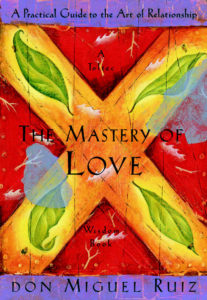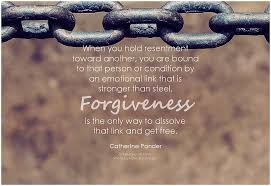
I just finished reading Don Miguel Ruiz’ The Mastery of Love, subtitled A Practical Guide to the Art of Relationship. I would be remiss to just move on without sharing my reflections on this important book somewhere.
I can’t tell you I agreed with everything the author had to say in his rather extreme view of the world. It is part of his philosophy that we’re all masters, but that through indoctrination as a human, we become masters of suffering through anger, jealousy, sadness and self-rejection and other negativities. They’re incorporated into our personalities to the point that we don’t even know we’re doing it. Ruiz tells us humans are living a dream of hell when it comes to relationships, then lays in some wisdom that I find to be remarkably profound. He has a way of being blunt, but sometimes you need to bring out the club to reach homo sapiens to get past all of its preconceived ideas. Accepting, for now, the premise that this is all Maya or a dreamlike illusion, we look at a bit of poetry he writes:
“Life is nothing but a dream, and if we are artists, then we can create our life with Love, and our dream becomes a masterpiece of art.”
Ah, the crux of the matter. This life of endless potential…a mix of constant challenges that remind us of how limited we are, learning opportunities, joy, suffering, fears, anticipation, disappointment and on and on…this life can become a masterpiece by mastering Love. Okay, now, I feel the attention deficit creeping in with some of you. Don’t be so quick to pull away. Ruiz is not one to leave us with a nice little conceptual piece of lightweight philosophy without any backing. He is a staunch realist on some level and would not be satisfied to give us empty information we can’t truly use. I happen to love that verse above and see how it can be pragmatic in an idealistic scenario. Maybe, though, I’m just a naive optimist. Let’s see what else he brings to the table.
He points out that we can live our lives in a track of love or a track of fear. How much of your life is guided by fear rather than love? It’s rampant. Ruiz raises our awareness of this condition and shows us in one chapter what a perfect relationship looks like.
Paraphrasing now, he says in order to truly love, we have to be able to forgive. All the blame and anger we’ve been harboring for what’s been done to us is holding our love hostage. Not only that, Ruiz states it is vital for us to forgive ourselves first. Then we can forgive everyone else. Forgiveness goes deep, too. It’s not just some surface acceptance of an apology. When it comes to ourselves, it requires healing our emotional psyche. The chapter on this definitely strikes a chord within me. He draws an analogy to how it is when we have to heal a wound or disease to our skin. The doctor may have to cut the skin to allow cleaning of the affected area, “apply medicine to it and keep the wounds clean until they heal and no longer hurt us.” He likens the scalpel to truth when it comes to opening the emotional wounds. Seeing the truth allows us to start the healing process as cutting into an infected body part enables the doctor to see why it isn’t healing. If we don’t view painful incidents truthfully, we live these incidents over and over, punishing ourselves in the process and suffering for years, possibly for the rest of our lives. The emotional poison we fail to release builds all the while. He points out that incidents of injustice are not always still happening. They probably aren’t happening right now, yet if we hold onto them and keep them mentally in the present, we suffer as though they are continually happening. “That is a choice,” says Ruiz.

Once the wounds are opened, cleaning begins. Forgiveness is the cleaning agent to use “because you don’t want to suffer and hurt yourself every time you remember what they did to you.” It helps you feel better. The next step is applying the medicine and the medicine is love–unconditional love. We love ourselves, our neighbors, our enemies. That self-love step has to happen first, though, and then the others can follow. When we are generating love, we are happy, not judging ourselves or others, not putting expectations out there and not trying to mould someone to our concepts of what they should be like.
We are Life. We are sources of Love. Surrender to these realities and see the improvement in your relationships, starting with you.
Leave a Reply